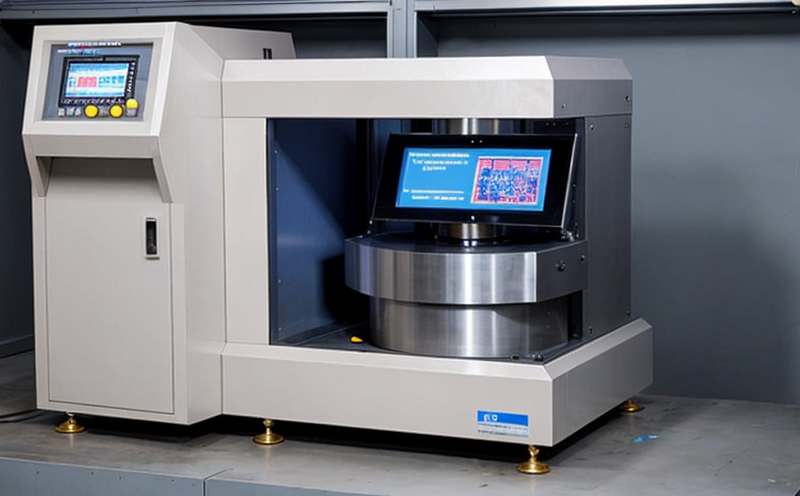ISO 15530-3 CMM Uncertainty Determination Testing
The ISO 15530-3 standard is a critical component of dimensional accuracy and metrology testing, providing guidelines for the determination of uncertainty in coordinate measuring machines (CMMs). This service ensures that measurements are accurate and reliable by quantifying the uncertainties associated with CMM operations. Understanding these uncertainties is essential for quality assurance, compliance with industry standards, and the continuous improvement of manufacturing processes.
CMMs play a pivotal role in the additive manufacturing and 3D printing sectors due to their ability to provide precise measurements that guide the creation of complex geometries. The accuracy of CMM measurements directly impacts the final product's quality and performance. ISO 15530-3 provides a structured approach to evaluating these uncertainties, ensuring that the results are reliable and repeatable.
The process begins with selecting appropriate test specimens that represent the typical parts produced by additive manufacturing processes. These specimens must be designed to challenge the CMM's capabilities while adhering to industry best practices. The testing environment is meticulously controlled to minimize external factors that could influence measurement accuracy, such as temperature and humidity.
During the testing process, multiple measurements are taken on each specimen, ensuring a comprehensive evaluation of the CMM's performance. Advanced statistical methods are then applied to determine the uncertainty associated with these measurements. This involves calculating both Type A (statistical) and Type B (non-statistical) components of uncertainty.
The results of this testing provide valuable insights into the precision and reliability of the CMM, enabling manufacturers to make informed decisions about calibration intervals, process adjustments, and equipment upgrades. Compliance with ISO 15530-3 ensures that your manufacturing processes meet international standards and deliver high-quality products.
Our laboratory uses state-of-the-art equipment and software to perform these tests accurately and efficiently. Our team of experts is well-versed in the nuances of this standard, ensuring that every test meets or exceeds the required specifications. By choosing our service, you gain access to a comprehensive evaluation process that enhances your product's dimensional accuracy and metrology performance.
Our commitment to excellence extends beyond just meeting standards; we also focus on providing actionable insights that can drive continuous improvement in your manufacturing processes. This service is not only about compliance but also about ensuring that you are at the forefront of quality assurance practices, setting a benchmark for industry leaders.
Applied Standards
| Standard | Description |
|---|---|
| ISO 15530-3:2017 | Guidelines for the determination of uncertainty in coordinate measuring machines. |
Quality and Reliability Assurance
Ensuring the accuracy and reliability of CMM measurements is crucial for maintaining high-quality standards in additive manufacturing and 3D printing. By adhering to ISO 15530-3, we provide a robust framework for assessing the uncertainty associated with these measurements. This process enhances your ability to meet strict quality requirements and ensures that your products are consistently reliable.
The results of this testing can be used to identify areas for improvement in your manufacturing processes. For instance, if certain features of your parts show higher uncertainties, you may need to revisit your design or calibration procedures. This proactive approach helps prevent costly errors and improves overall product quality.
Our service goes beyond mere compliance; it offers a deeper understanding of the factors contributing to measurement uncertainty. By providing detailed reports that include both numerical data and graphical representations, we ensure that you have all the information needed to make informed decisions. This level of transparency fosters trust between your organization and our laboratory.
Moreover, by integrating this testing into your regular quality assurance protocols, you can establish a culture of continuous improvement. Regular evaluations help maintain high standards over time, ensuring that your products remain competitive in the market.
Use Cases and Application Examples
The application of ISO 15530-3 CMM Uncertainty Determination Testing is wide-ranging, encompassing various industries where precision measurements are critical. In additive manufacturing, this testing ensures that the intricate geometries produced by 3D printers meet exact specifications. For instance, in aerospace and automotive sectors, where component accuracy can mean the difference between safety and failure, these tests are indispensable.
Similarly, in medical device manufacturing, where precision is paramount for patient safety, ISO 15530-3 ensures that every part produced meets stringent tolerances. In electronics manufacturing, this testing helps maintain consistent product quality, which is crucial given the tiny dimensions involved.
In addition to these industries, CMM Uncertainty Determination Testing is also vital for research and development (R&D) teams. By identifying areas of improvement early in the design process, R&D engineers can refine their prototypes more efficiently. This not only speeds up the product development cycle but also enhances the final product's performance.
For procurement departments, this testing provides reassurance that the equipment they are purchasing meets international standards and will perform as expected. By working with a laboratory that adheres to ISO 15530-3, you can rest assured that your investments in CMMs will deliver reliable results.
In summary, ISO 15530-3 CMM Uncertainty Determination Testing is essential for any organization committed to maintaining high standards of quality and reliability. By leveraging this service, you can ensure that your products meet or exceed industry expectations, thereby gaining a competitive edge in the market.





